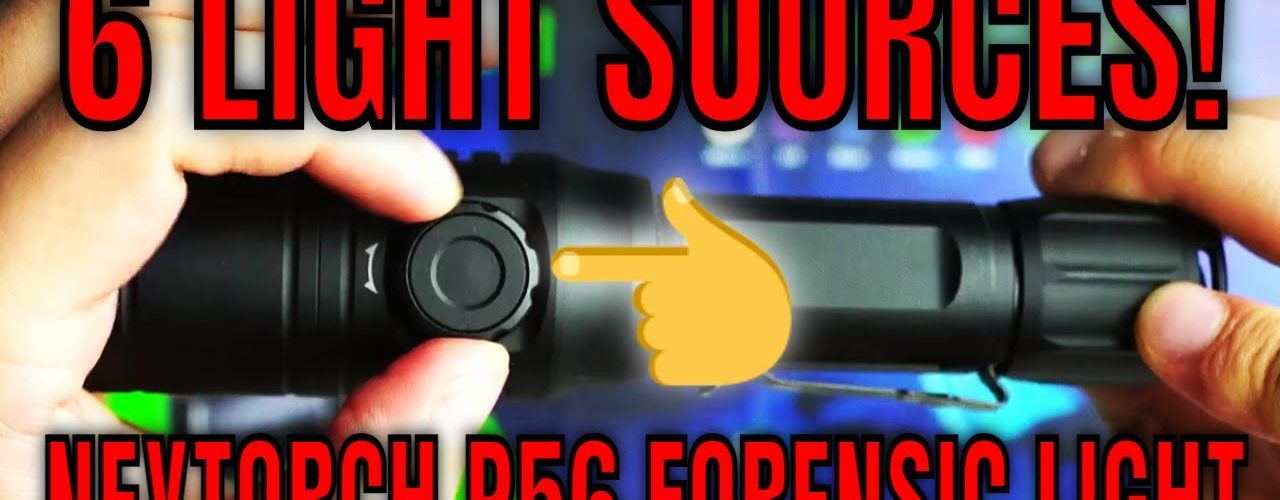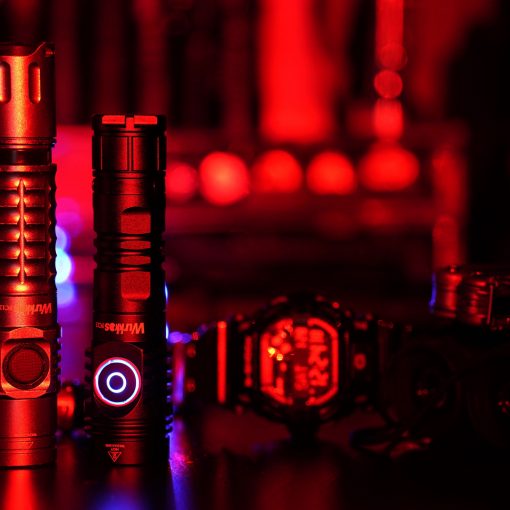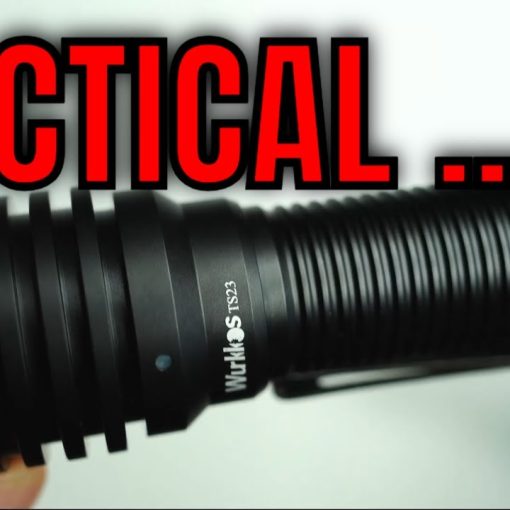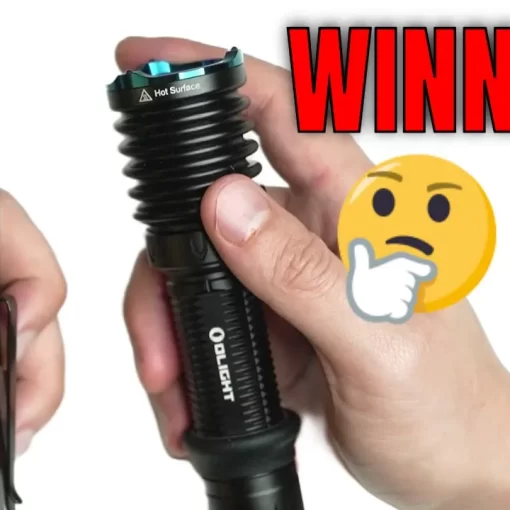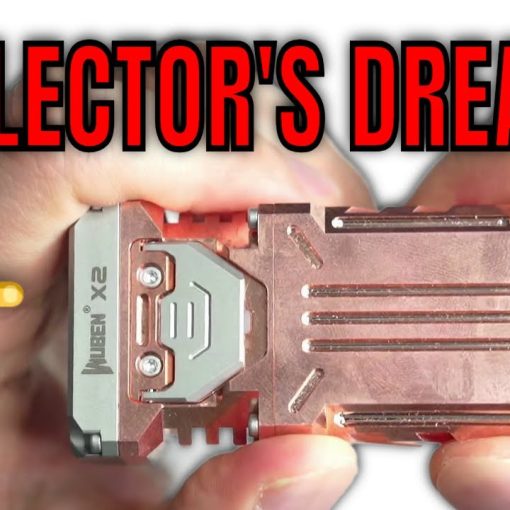Nextorch P56 Links
I review the Nextorch P56 Forensic Flashlight with 6 different light sources. This is a fascinating light with uses that go far beyond what a normal flashlight is capable of. I go through what these special uses are and demonstrate them in this video.
Get the Nextorch P56 👇
https://www.nextorch.com/products/p56-6-led-forensic-tactical-light-sources-kit?ref=darrenyeo (Affiliate Code: ‘DARRENYEO” for 10% Off)
Nextorch P56 Review
General thoughts after a week of usage/size comparison/practicality/interesting things:
• This is a unique flashlight – it feels more like a specialist tool. Nextorch applies that same attention to detail to all their flashlights and the P56 is no different. This one is marketed as a professional forensic flashlight. It has a rotating switch allowing you to select from 6 different light sources.
• What do you get in the box?
• Comparison with other Nextorch flashlights
Overall Construction, LED, lens, bezel and reflector
• Excellent quality machining as always from Nextorch – no imperfections or sharp edges. Some simple cutouts on the head, body, and tailcap. No knurling.
• Anodising is the best in the business – matt back and extremely tough compared to my other lights. A bunch of lights came loose and were knocking around in my backpack recently when I was doing beam shots – the P56 was the only one that didn’t get scratched up! The anodising is very grippy so even though there’s no knurling, you don’t notice. Tail switch + rotating side switch. The side switch is quite firm to prevent accidental mode switching. Firm pocket clip.
• 18650 with onboard charging, can also take 2xCR123 cells.
• Aspheric lens. LED brands not specified. However specifications for each are; Blue 450nm, UV 365nm, White, IR 850nm, Green 525nm, and Red 630nm. The rotating switch is mechanical and physically moves different LEDs in place when you turn it.
UI – modes
• Full press tailswitch for constant on. Half-press for momentary. Double half press for strobe.
• Rotate the dial to switch between white, blue, red, green, IR, UV
Colors and Uses:
• Blue light (450nm)
○ Bruises, injuries to skin and tissue
○ Body fluids, semen, saliva – generally after 6 hours, it will have a florescent reaction – generally thought to be the result action of bacteria on them. Most body fluids exhibit peak fluorescence under 440-460nm. UV light can often cause the background (white cloth for instance) to fluoresce more brightly than the body fluid itself, masking the weaker fluorescence
○ blood (appears dark red or black)
• UV light (365nm)
○ Identifying old paper – old book vs new book. Pre 1940s paper
○ Antiques, jade, and precious stone identification (e.g. lapis, ammonite)
○ Authenticating licenses, money, and official documents, identifying fluorescent ink
○ Checking the cleanliness of kitchen and bathroom, hotel rooms
○ Pest control – mouse/rat urine fluoresces under UV
○ Blood marks can appear darker under UV light. Cleaners like bleach will fluoresce. The chemical luminol reacts with the iron in hemoglobin to produce a faint blue glow under UV. Blood does not fluoresce directly without treatment first
○ Finger prints – UV powder must be used first
○ Lost bodies – UV causes modern clothing to fluoresce due to brighteners, and dyes, making it easier to locate
○ Hair can sometimes fluoresce
• White light
○ Ascertain the opacity of a material/paper. You can also identify cracks, tape residue, thickness
○ Glossiness identification – could be useful when authenticating cards, memorabilia or official documents
○ Shining light at different angles allows clearer imaging/identification of different surface materials including dust, hair, cracks, and textures. Footprints and impressions also show up more easily due to light not being able to reach inside the impression. Can take photos with a ruler next to the impression for shoe size. Law enforcement works with manufacturers to share design information – sole imprints and designs can be traced to specific stores and a period
• IR (850nm)
○ Detecting fraudulent documents, writing, or information behind painted areas. IR can see through certain materials and is often combined with a camera that can image IR
○ Alterations of check amounts, where two types of inks are used
○ Burnt paper with ink/graphite – IR can bring out faint marks and information left over from the damage.
○ Vein patterns – perp identification. Vein patterns are an individual as a fingerprint. IR light is combined with a camera that can image IR.
• Green (525nm)
○ Green brings out dark marks on the skin (keratin), pores, bruising and skin marks, blood
○ Erased ink on the skin can sometimes be seen with green light
○ Fingerprints and oils are more easily identified under green light
• Red (630nm)
Vein patterns – perp identification. Vein patterns are an individual as a fingerprint.
Performance – total output, beam profile, longevity, practicality
• Ceiling bounce test, CRI, CCT
• Large hotspot with minimal spill, even light in the hotspot
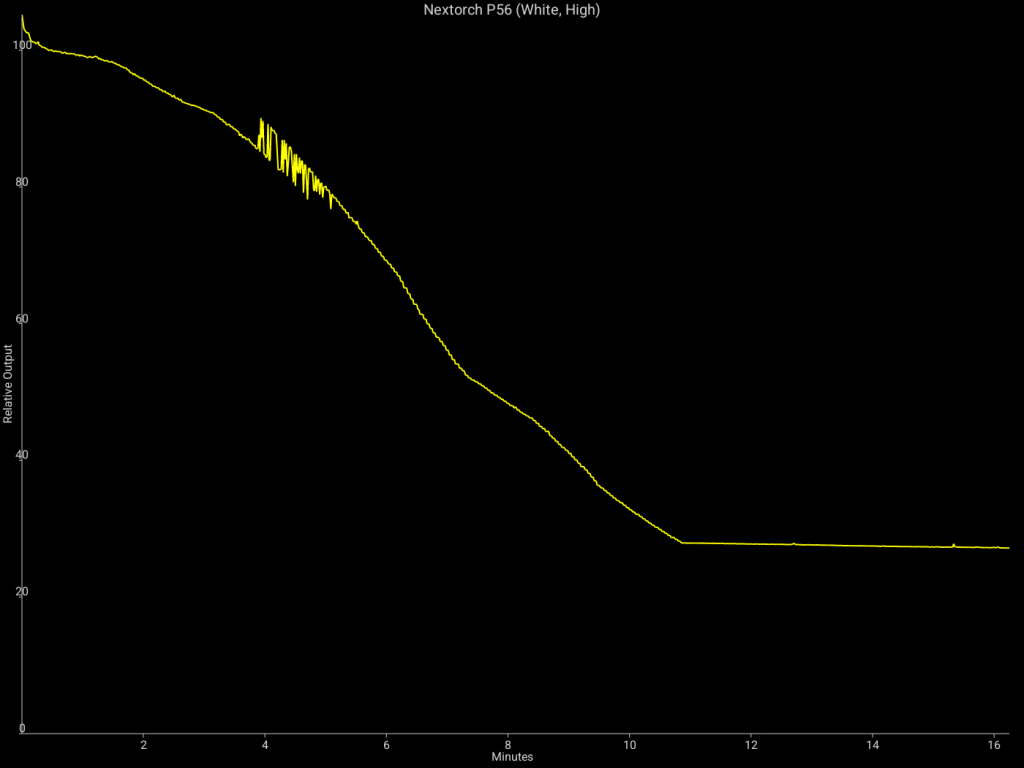
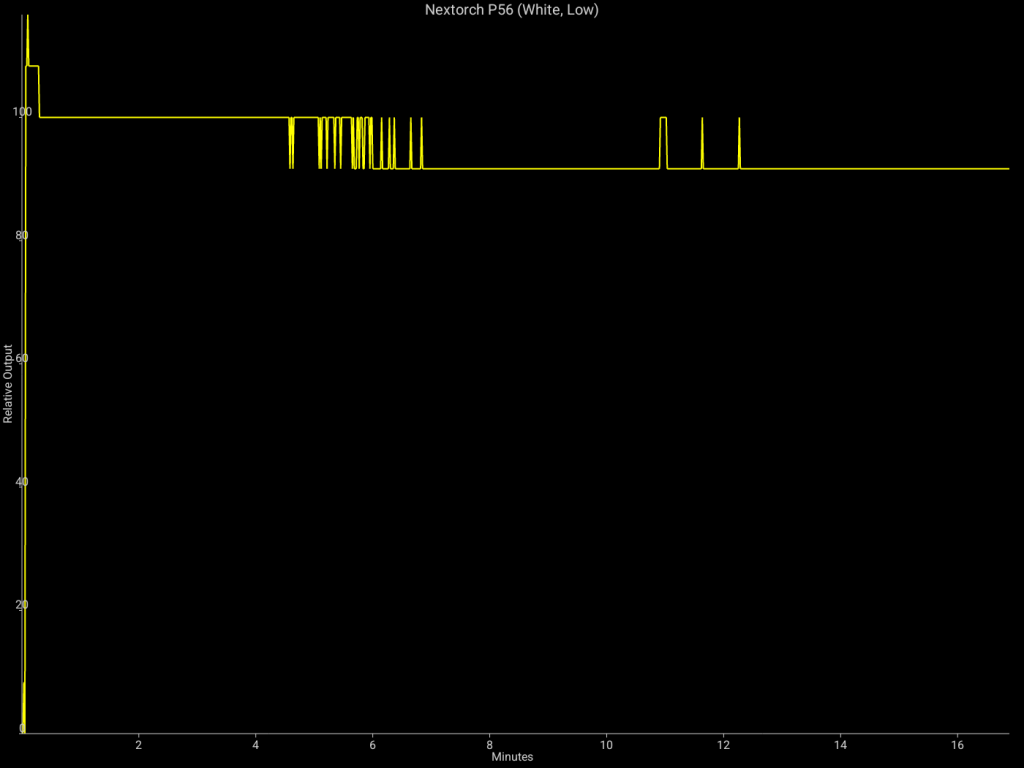
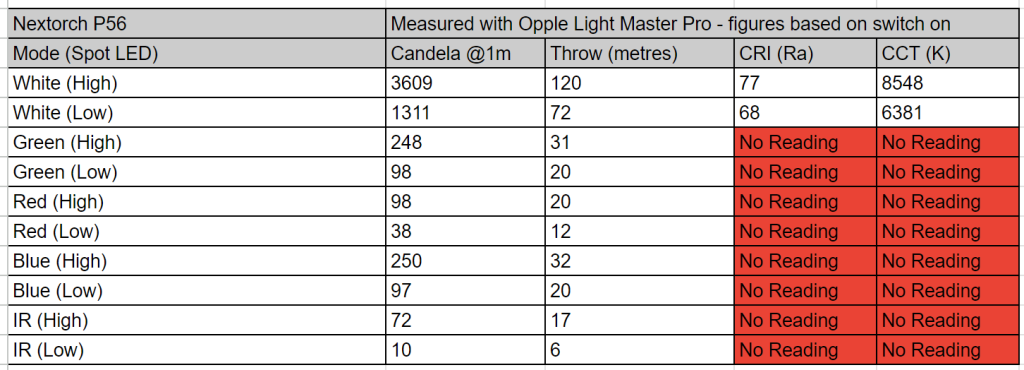
Considerations
• Specialized flashlight – it’s not the best option if you want a walking or general-purpose light. The beam profile is narrow. You can still use it as a general light but there is almost no spill. The beam looks like a spotlight, just larger in diameter.
• Price – it’s not cheap! But few lights compete with the P56 and have similar features. I like how easy it is to change to different colored beams, and there’s no need to attach/detach colored filters like other forensic lights.
• Non-USB-C charging. But you can charge the cell in a separate charger and also use other brands of 18650 batteries.
• Goggles would be better if lenses were made from glass.
• No battery indicator.
Verdict
This is an excellent forensic light if for some reason you’re in the market for one! I like the convenience of being able to change colors so easily with one hand. The P56 produces a completely even beam which is important in a forensic light. The build quality is outstanding and it feels like a professional tool.

